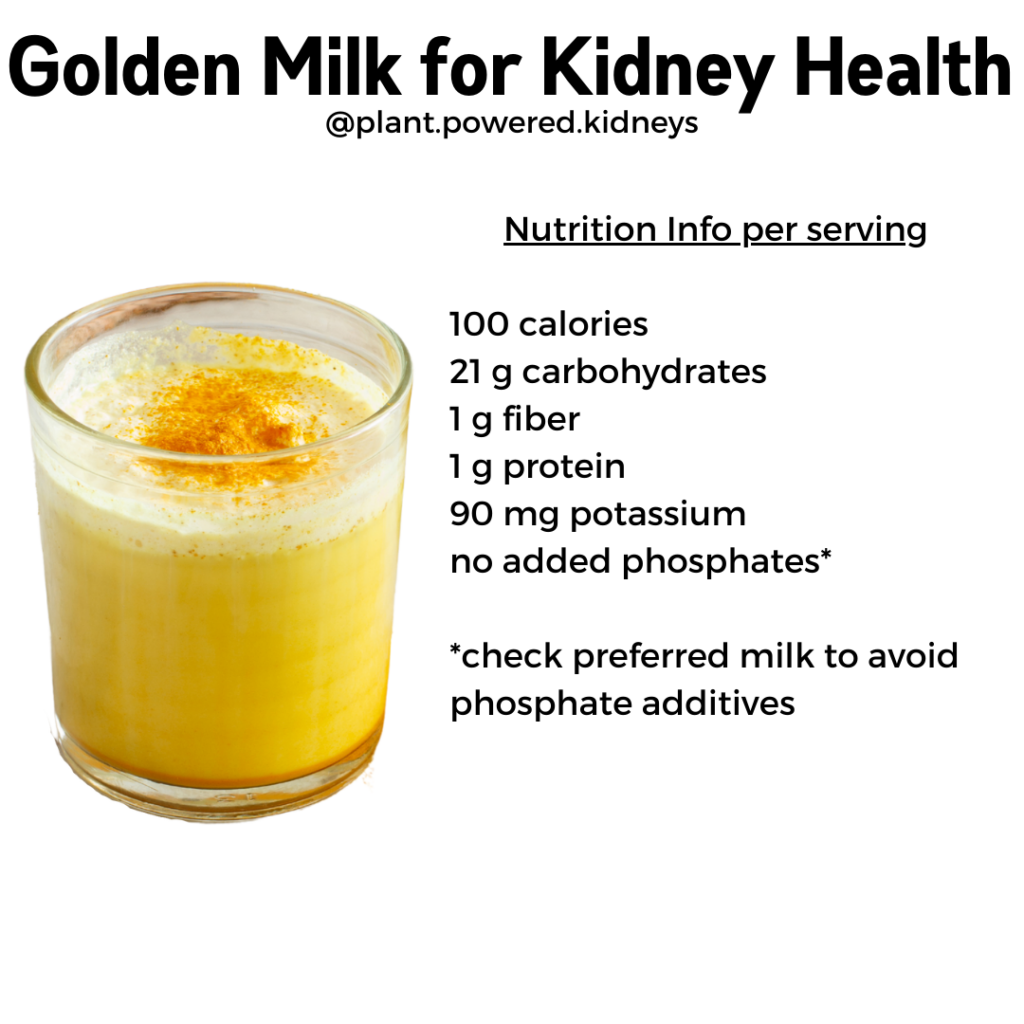Ginger has been used in the diet for centuries, including kidney disease. And you’re probably wondering if ginger is good for kidneys. There are many products that can include ginger, so understanding what to use and what to avoid can be important when it comes to kidney disease.
This article will review what ginger is, the different ways it can be used in the renal diet, and when ginger is bad for kidney patients.
Table of Contents
What Is Ginger?
Ginger is a flowering plant that is most commonly found in Asia, South America, and Africa.
It prefers warmer climates and temperatures. The root of ginger, also known as the rhizome, is otherwise known as Zingiber officinale.
The ginger spice we are most familiar with comes from the rhizome, or root of the plant. It is used in a variety of ways including food, beverages, cosmetics, and home goods.
As a spice, it does increase the “heat” of foods if used in excess. This is mainly observed with fresh or pickled ginger.
Nutrition Information For Ginger
Ginger is a very nutritious food and a little can go a long way. It’s good to know that ginger is not a significant source of potassium, phosphorus, or sodium.
This makes it something that most anyone can include in their kidney-friendly diet.
Gingerol is the antioxidant component of ginger, also known as a flavonoid. There are 33.6 mg flavonoids per 100 g of ginger.
If you are switching between fresh and ground ginger in cooking, 1 tablespoon of fresh ginger is equivalent to ¼ teaspoon of ground ginger.
Dose equivalents for 1 gram of ginger
One gram of ginger is equal to:
- 1 teaspoon of fresh grated ginger
- 2 droppers (2 mL) of liquid extract
- 2 teaspoons (10 mL) of syrup
- 4 8-ounce cups of ginger tea
- 8 ounces of ginger ale made with real ginger
- 2 pieces of crystallized ginger (1 piece = 1 square inch, ¼ inch thick)
- Supplement with 1 gram ginger extract
Ginger has several forms that may be included in the renal diet. These are the dose equivalents between different forms.
Benefits Of Ginger
The only truly proven benefit of ginger is that it can help reduce nausea and morning sickness.
Some people (myself included) use ginger during events that induce more nausea such as ocean travel, air travel, medication side effects, chemotherapy and pregnancy.
Therapeutic dosing of ginger is generally between 1-3 grams per day.
Other potential benefits of ginger include;
- Reduces inflammation
- Improved diabetes control
- Osteoarthritis
- Headaches and migraines
- Lower blood pressure
These potential benefits have not had enough research completed to be verified as true benefits of ginger.
Ginger side effects related to the kidney
There are certain precautions to take when adding ginger to the diet. Be sure to discuss any new supplements with your doctor prior to starting so they can help evaluate the safety of your new supplement.
Ginger has an anti-coagulant effect, so any other medications you may take for blood thinning can increase your risk of bruising or bleeding.
As ginger may lower blood sugars and/or blood pressure (two of the most common causes of chronic kidney disease), it is important to discuss any ginger supplementation with your nephrologist or endocrinologist prior to starting.
Taking ginger in high doses (more than 5 grams a day) may result in side effects such as;
- Gas
- Heartburn
- Upset stomach
- Mouth irritation
How To Add Ginger in a Renal Diet
As mentioned, ginger is not a high source of potassium, phosphorus, or sodium.
If you need to follow a low potassium diet, this article may be helpful.
Fresh and dried/ground ginger can be included in the diet. Dried ginger has the most antioxidant value.
Store fresh ginger for a longer duration by wrapping tightly with aluminum foil and then placing it in a freezer bag. Storing fresh ginger this way can keep it for several months.
Many products contain ginger already. Beverages like ginger tea or ginger ale are readily available and fairly easy to find. But you can also use ginger to make your own at home.

Is ginger tea good for kidneys?
Many wonder if ginger tea would be a good option for the kidneys in a renal diet. There are several things to consider before taking ginger tea.
As with nearly every packaged product, it’s important to read the label of any prepared ginger tea. Some teas will include other herbal products that may be harmful.
An example of a ginger tea that would be bad for kidneys is the Yogi Ginger tea. This tea includes licorice, which is not safe for people with kidney disease.
Licorice can change sodium and potassium levels in the body. This can be deadly.
Homemade ginger tea: A safer option for kidneys
To make ginger tea, simply take ½ to 1 teaspoon of fresh, peeled ginger and let it steep in hot (not boiling) water for 5-10 minutes.
You can also add ginger to lemonade or simply infuse it in water for a flavor boost.
Ginger Beer & Ginger Ale
Another source of ginger is ginger beer. It is similar to ginger ale but has a higher ginger dose due to the preparation method.
Ginger beer is made by fermentation with ginger. However, it is considered alcohol-free. The process and amount of ginger gives it a stronger ginger flavor.
Ginger ale has ginger syrup included with the carbonated water. This makes ginger beer more “spicy” and stronger in flavor compared to ginger ale.
Both ginger beer and ginger ale can be acceptable for a renal diet. Some of the things to consider when shopping for ginger ale or ginger beer are:
- Sugar content
- Phosphorus additives
- Potassium additives
- Other flavorings that aren’t safe for kidneys (like licorice)
More Spices For Your Kidneys
Turmeric
Another spice used in many places of the world, turmeric is high in antioxidants. The potent piece of turmeric is curcumin. Adding turmeric to the diet by sprinkling on veggies, adding to soups, stews, and even oatmeal can be very beneficial.
In many cases, I recommend curcumin supplements to clients as the supplement is the antioxidant component of turmeric. Curcumin has been seen as a safe supplement for CKD and is still being studied to assess benefits related to kidney function.
Another note of caution: turmeric has been shown to cause anemia. Anemia is one of the most common problems with chronic kidney disease, but there are some things you can do to help improve your anemia.
Black Pepper
One of the most commonly used spices in the world is black pepper. Black pepper is easy to find and use on a variety of dishes.
Black pepper also helps with absorption of curcumin from turmeric, so you may see the two paired in many recipes that boast anti-inflammatory benefits.
Cinnamon
Cinnamon has been proven to help control blood sugars in those with diabetes.
It’s a warming spice that can be used in so many ways (especially with fruits and desserts). Cinnamon is easy to add to your renal diet.
Learn more about the renal diabetic diet here.
Garlic
Undoubtedly one of our favorite spices, garlic is a wonderful way to add a ton of flavor to your meals. Fresh, powdered, or roasted, garlic provides a spicy and strong flavor to whatever you like.
Garlic is most known for its health benefits in lowering cholesterol. It has also been shown to lower the risk of certain cancers and help with heart health.
Cardamom
Another warming spice that compliments ginger is cardamom. It comes in pods where the seeds and oils can be used.
Cardamom contains antioxidants and has anti-inflammatory benefits. It has been shown to improve blood pressure.
However, a randomized control trial compared cardamom with cinnamon, ginger, and saffron showed no significant differences between the different spices.
Another study looked at cardamom supplementation on lipid and blood pressure levels in pre-diabetic women. There, researchers found a decrease in LDL (bad cholesterol) and an increase in HDL (good cholesterol).
Golden Milk For Kidney Health Recipe
Golden milk is a delicious beverage you can enjoy hot or cold. It can be consumed any time of the day because it has no caffeine.
Since this recipe base includes milk, you may want to check out our article about milk options for the renal diet.
Directions
In a small saucepan, warm two cups (16 ounces) of unsweetened milk of choice over medium heat for 3-5 minutes.
Next, whisk in each of the following spices:
- 1 teaspoon ground turmeric
- ¼ teaspoon ground ginger
- ¼ teaspoon ground cinnamon
- a pinch of black pepper
Add in sweetener of choice (honey, maple syrup, sugar, or sugar-substitute like Stevia) to desired taste.
Continue to heat over medium-high heat for 3-5 minutes, but not to boil. Remove from heat and allow to cool slightly. Add additional spices to your preference. This can be stored for up to 3 days in the refrigerator.
Nutrition information per serving

Summary
Adding spices like ginger to your renal diet can be a great way to increase your antioxidants. In using more spices, you can also find that you don’t need to add salt to your foods as much either, saving your kidneys from higher blood pressure and swelling.
Ginger has been shown to provide anti-inflammatory benefits, even for the renal diet. Choosing fresh, ground, or even pickled ginger can work.
Start by adding ginger and complimentary spices to your foods and beverages before looking into capsules and supplements.
Supplements may be helpful if you don’t like the flavors, but it’s extremely important to discuss any and all supplements with your doctor before starting to ensure it doesn’t interact with your medications.
This is especially important as ginger can impact blood sugar and blood pressure levels. Blood thinner use can change since ginger can also change blood coagulation.
For drinks, ginger tea can be a great option. Be careful of the other added ingredients in pre-packaged teas. The safest option is to make your own ginger tea by steeping cleaned and peeled ginger in hot water.
Ginger ale and ginger beer can also be used. They do have higher sugar content and the potential for added phosphates and potassium additives. Read the labels to be certain it is okay for you.
Whatever you choose, be sure to include it on occasion. It doesn’t need to become a strict renal diet rule. There are many other opportunities in the renal diet that can provide better value – like more fruits and vegetables.



This is great info, been trying to learn more about spices, herbs, vinegars etc!
Thanks Jen!
So happy to hear that, Dolores! 🙂
You really are the only dietitian that gives such helpful information to CKD patients! There’s so much the NHS in the UK could learn from you 😊
I’m so glad you find the information here helpful! Feel free to share content from my website and blog with others that could also benefit! 🙂
Thanks.
You’re welcome! 🙂
Renal diets by and large are awful. Help.
Traditional renal diets are definitely… blah. I address a lot of renal diet myths here, on Instagram (@plant.powered.kidneys) and in my Plant-Powered Kidneys online course!
[email protected] great information I have a dull pain in my right side when I eat surgar or drink coffee or alcohol I will start taking the ginger and other spices on your page don’t want to go to a doctors office right now do to corona virus have been communicating with my doctor over the phone he prescribed antibiotic over the phone also have been diagnosis with sciatica back pain and have incontinence after having a urinary tract infection
Be sure you contact your healthcare team with any concerns. It’s not recommended to self-treat as we don’t know what we’re treating (because we don’t know what’s causing it)! Best wishes to you, Patsy!
Thank you, how to contact a doctor who work with y’all u on strength kidneys. Kaiser don’t. No plans only if the diagnose they recommend meds . Nothing healthy.
I’m not having problems right now. But I’m happy n my 70’tis.
Thank you
Hi Ruth! You may want to check out my article about making the most of your kidney specialist appointment!
Jen
Thank you for the most helpful information I have found anywhere. You are a blessing to all of us. When I asked my doctor for a referral for a renal dietician she said they don’t usually recommend that until you are in dialysis. i thought the idea was to act to prevent that. I am so glad I found you. Thank you!
That is so sweet, Carol! The “old-school” thought about dietitian referrals is “just wait until you’re on dialysis, then you’ll have a dietitian.” Granted, there are not a ton of dietitians out there that specialize in and focus on early chronic kidney disease. But we do exist! And there are a lot of things that can be done early on to prevent or delay decline into dialysis and end stage kidney failure. Great job keeping up with your health needs and goals!
In one recipe for the golden milk you said to use 2 cups milk. In another you said 1 cup. Which is correct?
Thanks for your clarification.
Thanks for pointing out the error! The recipe is for two servings using 2 cups milk with 1 teaspoon of turmeric powder. A single serving would be 1 cup milk and 1/2 the spice ingredients listed.
I recently bought an organic tea that has 1500 mg of ginger rhizome per 1 cup serving. Will 1 serving of this tea per day raise my blood potassium? I am a transplant patient – 15 years out and need to watch my potassium even though my other labs (aside from potassium level) are all normal. Thank you very much!
I can’t say whether or not that will impact your labs as I don’t know your lab or medical history. But this sounds like a great question for your transplant team. They can help review the tea to make sure it’s safe for you and your transplant. 🙂
That is a good idea and will leave no room for doubt. Thank you for taking the time to answer my question.
Happy to help! 🙂
Hi Jen my last egfr is 50 creatinine of 1.12 urine protein negative and Uric acid 8.My doctor said just hydration and to see him in 3 months.no mention of diets except no red meats seafoods and nuts especially because of my uric acid. I think I’m on stage 3A. Should I start watching my potassium and phosphorus intake? My Blood pressure is stable I’m watching my sodium intake. A1c is 5.6 Is chamomile tea and slippery elm tea kidney friendly? Hope to get response from you. Thank you.
Hi Heidi! Thanks for your comment. I would encourage getting a referral for a dietitian to help you personally with your diet. Chamomile tea is generally safe (be sure there’s no other remedies or additives), but I am unfamiliar with slippery elm tea. I do think my course would be a GREAT help to you to get a solid understanding on the fundamentals of the renal diet. We’ll be opening registration soon, but you can get on the waitlist to be first in line at Online Course: Plant Powered Kidneys
No one has ever told me that licorice is dangerous for CKD! Thanks for the info!
You’re very welcome, Rhonda! 🙂
Hi. I gave my son (28 year old) licorice tabs for stomach issues. After only 3-5 tabs he started having red urine like cola. Never had kidney issues before, but dr says he has now chronic glomerular nephritis! Since then 2 weeks and i am still in panic. Because everything has skyrocketed in urine lab test. Will this resolve or not? Now lab tests are almost normal though. Doctors said not from licorice(they dont know much about probably), but thank you so much telling us about danger of licorice.
Hi Shi,
I’m so sorry to hear the struggle your son has gone through. That must be very hard to cope with. We cannot give medical advice, so it’s best to follow up with your son’s healthcare team. Licorice is definitely something to be cautious with, though!
Hi Jen! I am really excited to try out this Golden Milk Recipe. Just wondering for the non-dairy milk, is it okay to use oat milk? I don’t see Potassium in the list of ingredients content in the oat milk i plan to use but as I was reading through some IG posts, it was mentioned that there’s potassium in oat milk. The brand i’ll be using is called Pure Harvest Organic Unsweetened Oat Milk. Hope to hear from you soon about it. Can’t thank you enough for doing this website where I can get lots of info about kidney diet, seeing that my country is not experienced in that area.
Hi Amanda 🙂 It’s great you check the ingredients list- that’s my first stop when researching products! Many oat milks have added potassium and phosphates, which makes them less kidney-friendly. This one looks okay in general as it’s not using those additives. It’s calcium-fortified, so that’s something to be aware of. Some people need to be careful with calcium-fortified foods (essentially not taking in an excessive amount of calcium that the body/kidney wouldn’t know how to handle).
Hello, Mrs. Jen, my Husband has Kidney Disease I wanted to get some good Renal Recipes also I went on Dadvice tv about the supplements he takes for kidney Disease also I just need some good advice on meals I can prepare for him and Breakfast foods and cereals and butter Thank you have a Blessed Day
Be sure to check our other blog articles, which have recipes sprinkled through them. We also have a free 6-day plan available to download! I hope that helps, Sandra. 🙂
Hi Ms. Jen! It was a blessing to chance upon your article. I am a Nephritis patient
for a many years now. I’ve been reading about kidney diet in the internet, trying my best to improve my kidney function. Various comments here gave me ideas on what to eat and what to avoid. I hope to read more on this. Thank you.
We’re so happy to have you here, Ms. Edith! Enjoy all the information we provide 💚